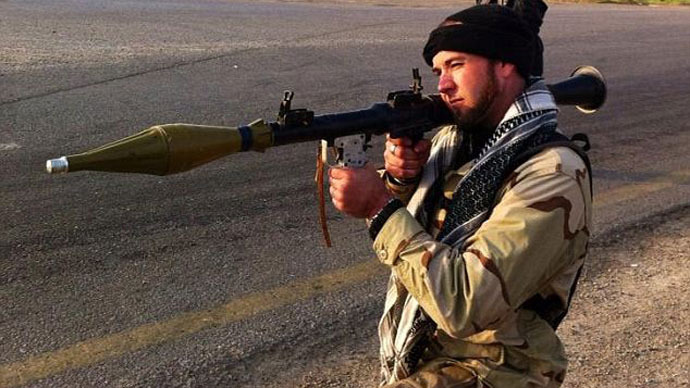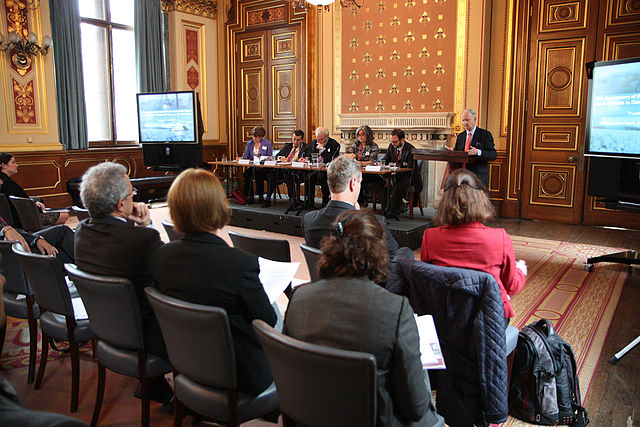Willow: Hi Anita, how are you today?
Anita: Good, as long as I don’t watch the news. Thanks for asking.
Willow: Oh dear. Why is that?
Anita: In short, as Whoopi would say, ‘the guy in the White House’s’ mockery of all we hold dear… and that’s only over the border. Our own backyard isn’t much prettier these days. All those who sacrificed in the forging of Canada and the US may just be rolling over in their graves at the more regressive than progressive shenanigans going on.
Willow: *chuckles* Well how about we start with a few questions I’ve prepared. You’re a descendant of the Rogers family, can you tell us a little bit about that? Why are we talking about them today?
Anita: Sure. The military history of the Rogers family dates to The Battle of Hastings in 1066. My ancestor was an officer in William The Conqueror’s army. From then until the end of WWII the family’s military service was pretty prolific.
The Rogers family, and in particular the story of Robert Rogers and his brother James, resonate in today’s global political climate. Loyalties are often, not so much split, but dual as they were for Robert and James. For all of the bad press immigration gets in today’s news, the Rogers exemplified the positive contributions that immigrants can make in their adopted countries. Our countries are made of immigrants, yet here many seek to repaint that particular historical landscape.
Robert Rogers and his older brother James were the children of Irish immigrants to Massachusetts. They wanted nothing more than to be farmers, but they and their brother Richard (and possibly John) answered their King and Country’s every call to duty, without hesitation.
Willow: That is so interesting. Tell me more. In previous conversations, you’ve spoken about the ‘Rogers’ Rangers’, who were they?
Anita: So, Robert Rogers was fifteen when he became a private in a scouting company during King George’s War. Beginning with the French and Indian War, Robert, with James by his side, earned ‘fame and glory,’ creating and commanding the Rogers’ Rangers, King’s Rangers, and Queen’s (York) Rangers. Robert created Robert Rogers’ 28 Rules of Ranging/Standing Orders that are still used in modern warfare. He revolutionized- pardon the pun- ranging to become a literal force to be reckoned with. It is said that Rangers’ skills were invaluable in protecting their country during the French and Indian Wars, Pontiac’s Rebellion, and the American Revolution.
Robert once boasted dual ranks as both a Captain, and Major. Both Robert and James achieved the rank of Lieutenant-Colonel in their careers, a rank that had never been awarded to frontiersmen before.
Willow: Incredible. What did Robert and James do when peace broke out?
Anita: After faithfully serving their country, they had to decide where their loyalty truly was when their country wanted independence from the Crown. They remained loyal to their King, and it cost them both dearly.
In crippling debt, primarily from funding everything in the ranger corps out of his own pocket, Robert was put in debtor’s prison from which he escaped, heading to England where he wrote two books, one of which was his personal journals, and a stage play on what he experienced. He returned to Canada as (Royal) Lieutenant Governor of Michilimackinac (Mackinaw City, Michigan), with an ill-fated charter to search for the Northwest Passage.
Thanks to a successful smear campaign by a jealous General (Gage), Robert was charged and acquitted of treason. Unwilling to serve under Gage, he returned to England to ask the King for debt relief. He ended up in Debtor’s Prison… again.
When the American Revolution began, Rogers returned to America once again, and was offered a commission by General Washington despite some reservations. Rogers declined it due to his loyalty to the King. Dispirited, Robert grudgingly, joined the Loyalist cause, but he was never the same. In truth, he didn’t want to fight against his former lieutenants who were now revolutionary Generals.
He was retired early into that commission: his spirit was broken. By and large, he lived his remaining years in England, in obscurity- at the bottom of a bottle, and poor- having lost all he held dear.
As for James, after being persecuted for his loyalty to the King, and having had everything taken from him, James led a large group loyal to the King to Upper Canada, which he was instrumental in settling. He led the King’s York Rangers against those he once fought alongside, during the American Revolution. He did so with a bad taste in his mouth. Afterwards, he returned to his home in America, where he lived out the rest of his days.
Willow: You mention some pretty amazing accomplishments by the Rangers. What would you say are the most important things that we can learn from them?
Anita: Well, honestly there are a few very important things. First, politics can be a dangerous game when the egos and aspirations of petty, self-important people prevail.
Second, war is an evil, but sometimes necessary, construct of man. It pits friends, family and allies against one another and I could not begin to imagine the mental toll this has on soldiers of all ranks.
Third, I think they remind us that principles and loyalty are the measure of a man. While admirable, it often comes with an unforeseen heavy cost.
Willow: What I find particularly interesting about this history is that Robert and James were sort of caught between two flags. They couldn’t have been the only ones struggling with this at the time, and yet Britain and the United States remain Canada’s closest allies today. Thoughts?
Anita: Both Rogers men gave their all to their King and Country. Ultimately, they were left with little alternative, but to fight against their own country for a time, which left them both in turmoil: two men caught between two flags. Robert and James understood the revolutionary cause, but felt that there was a better solution than war. Neither voice was heard. (Canada managed just fine without dividing the country and fighting a war.) Many followed the rebel cause for their own safety, but with no conviction. Maybe that speaks to the American fascination with the British monarchy to this day.
Willow: Onto one of my final questions for you. Why do you think Robert Rogers is not more well remembered in Canadian history?
Anita: Sadly, I think most Canadians know more about American history than our own. The bulk of Robert Rogers’ fame was garnered in America. Monuments, and books do, however, exist to memorialize him. Also, in Canada, the Queen’s York Rangers does not carry his name. If it did, maybe his legacy would be more memorable. Maybe if Rogers Rangers was an action series or a video game, more people would be aware. In fiction Robert’s later life is depicted in The Northwest Passage by Kenneth Roberts, and the 1940 film Northwest Passage, starring Spencer Tracy as Major Rogers, so there’s that.
Sadly, despite their successes, people often choose to remember a person by their failures or misinformation.
Willow: That is so true. So, in closing, why so you think it remains so important to keep military histories and stories like the Rogers’ alive?
Anita: History is so much more than the recording of events, and facts. History is about real people doing what they believed to be the right thing at the time: right or wrong. The consequences, fair or not, are real, and not always altruistic in nature. It’s the dirty part of war… of life. Given the obstacles thrown in one’s path, the best we can do is to rise above circumstance: consequences be damned… and maybe come out better on the other side.
Also, not everyone realizes that everything we hold dear in terms of freedom and relative safety is fragile and precious. It has come with great sacrifice that ought never be diminished or trivialized as being old news with no current relevance.
To quote Rogers’ first standing order, “Don’t forget nothing.” All manner of history is important to remember… as they say, Lest We Forget.
Willow: Well Anita, I’d just like to thank you for sharing these stories. I’m sure people will find them very interesting.
Anita: Thanks for letting me share one of many chapters of history.
Featured Image: A color messotint of a representation of American ranger Robert Rogers. (There are no known likenesses of Rogers made from life), December 31, 1775, by Johann Martin Will, published by Thomas Hart, from the Anne S. K. Brown Military Collection (ASK Brown Call No. UMP1776mf-6).
Disclaimer: Any views or opinions expressed in articles are solely those of the authors and do not necessarily represent the views of the NATO Association of Canada.




